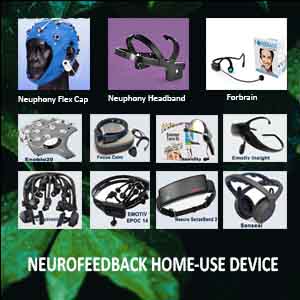Neurofeedback for depression. Protocols
Depression is one of the most common mental disorders and the number one cause of disability worldwide. Traditionally, depression has been treated with therapy and medication, both of which have limitations. Even with medication, countless depression sufferers continue to struggle. Medication doesn’t teach the brain how to get out of the unhealthy brain pattern of depression. While drugs can serve some positive benefits, there are numerous problems with these medications, including unwanted side effects and reliance on the medication. Neurofeedback for depression can help restore healthier brain patterns and eliminate depression by teaching the brain to get “unstuck” and better modulate itself. It works on the root of the problem, altering the brain patterns affiliated with depression. It can bring lasting brain changes, is non-invasive, and produces no undesirable side effects. Understanding Depression: A Common Yet Serious Mental Health Condition Feeling down from time to time is a normal part of life. However, when emotions such as hopelessness and despair take hold and won’t go away, you may have depression. More than just sadness in response to life’s struggles and setbacks, depression changes how you think, feel, and function in daily activities. It can interfere with your ability to work, study, eat, sleep, and enjoy life. Just trying to get through the day can be overwhelming. If depression is left untreated, it can become a severe health condition. Depression is one of the most common mental disorders and the number one cause of disability worldwide. It can affect anyone at almost any age. It is estimated that 10% to 15% of the general population will experience clinical depression in their lifetime. The World Health Organization estimates 5% of men and 9% of women experience depressive disorders in any given year. Over half of people who experience depression will experience anxiety at the same time. The financial costs of depression are tremendous, with the global costs per year of depression and anxiety estimated to be $1.15 trillion. CAUSES OF DEPRESSION There’s no single cause of depression. It can occur for various reasons, and it has many different triggers.For some people, an upsetting or stressful life event, such as bereavement, divorce, illness, redundancy, and job or money worries, can be the cause. Different causes can often combine to trigger depression. For example, you may feel low after being ill and then experience a traumatic event, such as a bereavement, which brings on depression. People often talk about a “downward spiral” of events that leads to depression. For example, if your relationships with your partner break down, you’re likely to feel low, you may stop seeing friends and family, and you may start drinking more. All of this can make you feel worse and trigger depression. Some studies have also suggested that you’re more likely to get depression as you get older and that it’s more common in people who live in complex social and economic circumstances. Common causes of depression Stressful events Most people take time to come to terms with stressful events, such as bereavement or a relationship breakdown. When these stressful events occur, your risk of becoming depressed increases if you stop seeing your friends and family and try to deal with your problems on your own. Personality You may be more vulnerable to depression if you have certain personality traits, such as low self-esteem or being overly self-critical. This may be because of the genes you’ve inherited from your parents, your early life experiences, or both. Family history Since it can run in families, it’s likely some people have a genetic susceptibility to depression. If someone in your family has had depression in the past, such as a parent, sister, or brother, it’s more likely that you’ll also develop it. However, there is no single “depression” gene. Your lifestyle choices, relationships, and coping skills matter as much as genetics. Giving birth Some women are particularly vulnerable to depression after pregnancy. The hormonal and physical changes, as well as the added responsibility of a new life, can lead to postnatal depression. Loneliness and isolation Feelings of loneliness, caused by things such as becoming cut off from your family and friends, can increase your risk of depression. However, having depression can cause you to withdraw from others, exacerbating feelings of isolation. Alcohol and drugs When life is getting people down, some of them try to cope by drinking too much alcohol or taking drugs. This can result in a spiral of depression. Cannabis can help you relax, but there’s evidence that it can also bring on depression, particularly in teenagers. “Drowning your sorrows” with a drink is also not recommended. Alcohol affects the chemistry of the brain, which increases the risk of depression. Chronic illness or pain The mind links to the body. If you are experiencing a physical health problem, you may discover changes in your mental health as well. You may have a higher risk of depression if you have a longstanding or life-threatening illness, such as coronary heart disease or cancer.Head injuries are also an often under-recognized cause of depression. A severe head injury can trigger mood swings and emotional problems.Some people may have an underactive thyroid (hypothyroidism) resulting from problems with their immune system. In rarer cases, a minor head injury can damage the pituitary gland, a pea-sized gland at the base of the brain that produces thyroid-stimulating hormones.This can cause many symptoms, such as extreme tiredness and a lack of interest in sex (loss of libido), which can, in turn, lead to depression. SIGNS AND SYMPTOMS OF DEPRESSION Depression varies from person to person, but there are some common signs and symptoms. It’s important to remember that these symptoms can be part of life’s average lows. But the more symptoms you have, the stronger they are, and the longer they’ve lasted – the more likely it is that you’re dealing with depression. Depression is an ongoing problem, not a passing one. It consists of episodes during which the symptoms last at least two weeks. Depression can last for several weeks, months, or years. … Continue reading Neurofeedback for depression. Protocols



